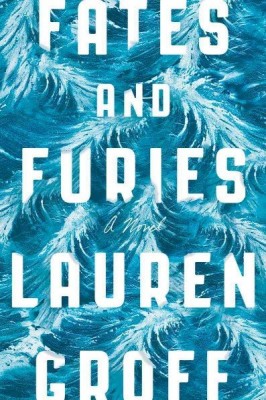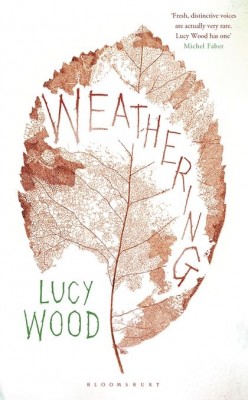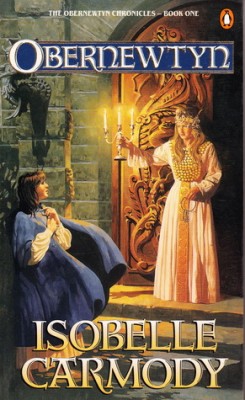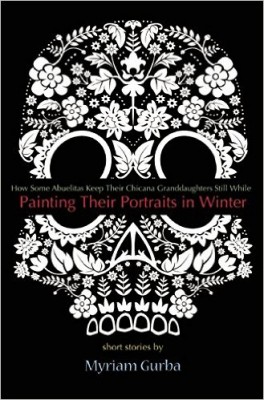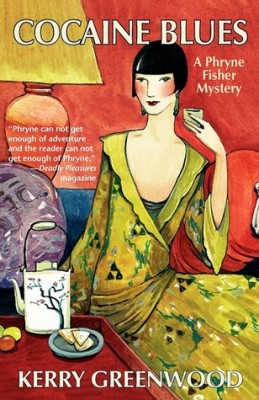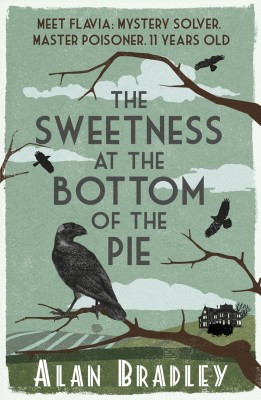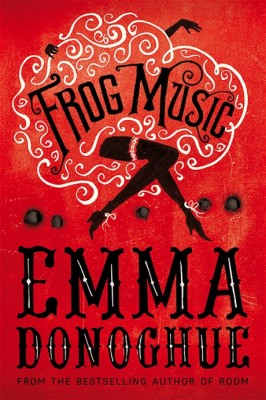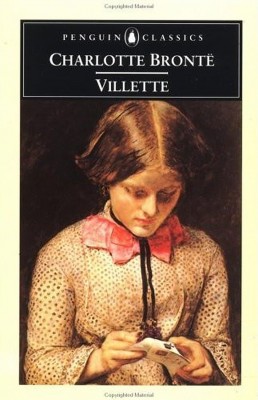Married impulsively after a two-week relationship, Lotto and Mathilde are young, beautiful, and free. Lotto is gregarious and rich, Mathilde is quiet and has a mysterious past. Their friends predict it will be over in a year.
This is the second book in a row that I’ve read in which a marriage is narrated from the perspective of each of its members. Continue reading Fates and Furies
Following the death of Pearl, her daughter, Ada, and granddaughter, Pepper, move back into her dilapidated house by a river somewhere in rural England (Devon, according to interviews with the author, but I’m pretty sure that’s not mentioned in the book). Ada’s intention is to fix the place up to sell and leave again as quickly as possible, but she is gradually drawn back in to the community she fled, and is forced to confront the ghosts of her past.
Continue reading Weathering
Twenty-six years after she began, Isobelle Carmody has published the final novel in this series. There are only seven books altogether, meaning she averaged almost four years per book, which, for something that was clearly not proof-read or subjected to any editorial process, is frankly unforgivable.
These books are exactly as bad as you think they are. The writing is clunky, the plot meandering, and the action is littered with unnecessary red herrings that fail to be resolved satisfactorily. And yet. Having started reading these novels at the tender age of I don’t really remember but probably like 14 or so, I can finally, FINALLY, put to death the part of myself that still cares about the characters that inhabit this fantasy universe.
Continue reading The Obernewtyn Chronicles
In the first story of this collection, the narrator/author’s grandmother (Abuelita), an artist, has her young granddaughters pose for her. In order to keep them from fidgeting, as she paints, she tells them increasingly gruesome Mexican fairytales; appalled and fascinated, they beg for more.
Continue reading Painting Their Portraits in Winter
It’s been pretty quiet on the Book Report front for a while now, and there are several good reasons for that, namely: (a) a re-read of The Lord of the Rings while on holiday in New Zealand because appropriate; followed by (b) a re-read of some Agatha Christie faves, also while on holidays, because it’s holidays and I don’t want to read anything depressing and/or that I don’t already know the ending of; followed by (c) the following.
Continue reading Cocaine Blues (et al)
“Heaven must be a place where the library is open twenty-four hours a day, seven days a week.”
So speaks Flavia de Luce, a heroine after mine own heart: chemist; amateur sleuth; expert in poisons both rare and bog-standard; eleven-year-old girl. Flavia’s world is turned upside-down when she wanders into the garden one evening in 1950 and discovers something most unpleasant in the cucumber patch.
Continue reading The Sweetness at the Bottom of the Pie
Ever since I was a teenager, and realised I had a choice about it, I’ve tended to avoid reading the blurbs of books before I read the books themselves. Possibly because so many copywriters are failed novelists, I’ve often found that blurbs are far too eager to try to dictate to me what the subtext of a book is, or explain its thematic intentions. I’d rather dive into a novel without preconceptions about what I should expect to find there.
Continue reading Frog Music
Villette, Charlotte Bronte’s third published novel, was partly based on her experiences working in a school in Brussels as a young woman. Its protagonist is Lucy Snowe, orphaned at a young age and required to make her own way in the world almost friendless, who by a series of coincidences ends up working in a girls’ school in the small (fictional) town of Villette, where also dwells a childhood friend.
Continue reading Villette
Moss’s previous work includes two interrelated novels, Night Waking and Bodies of Light. Signs for Lost Children, her most recent, is the third in that series, picking up more or less where Bodies of Light left off. It follows the career of Alethea (Ally) Moberley, a fictional character who, along with her associates, is reputedly modelled on the pioneering group of female medical students known as the Edinburgh Seven, some of the first women to qualify as doctors in Britain. At the beginning of Signs, Ally has graduated, married, is living in Cornwall and is commencing voluntary work at a lunatic asylum in order to pursue her interest in mental illness.
Continue reading Signs for Lost Children
Beginning in 1947, this novel traces the lives of four interconnected Londoners back through time into the Blitz. I’m a complete tragic for anything set in this time and place, so it’s no surprise that I ripped through it quite happily. As an example of Waters’s work, it’s relatively typical, though certainly not her best (probably The Little Stranger or Fingersmith, though I can’t claim to have read them all). The reverse chronological is the perfect mechanism for this particular plot, and it makes me wonder which she decided on first, format or content; I like to imagine her coming up with the story and then, in a flash of 2am inspiration, realising how much more effective it could be if the flux, so to speak, were reversed.
Continue reading The Night Watch
